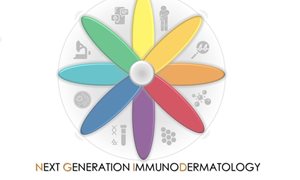 A study titled "Aggregation of population-based genetic variation over protein domain homologues and its potential use in genetic diagnostics" was recently accepted for publication in Human Mutation.
A study titled "Aggregation of population-based genetic variation over protein domain homologues and its potential use in genetic diagnostics" was recently accepted for publication in Human Mutation.
his work was a collaborative effort between Christian Gilissen, Department of Human Genetics, and Gert Vriend, Centre for Molecular and Biomolecular Informatics.
This publication is part of the PhD project of Laurens van de Wiel and shows how homologous protein domain relations may be used to interpret normal and pathogenic variation at a much finer scale than previously possible.
“We developed a framework that maps population variation and known pathogenic mutations onto 2,750 “meta-domains.” These meta-domains consist of 30,853 homologous Pfam protein domain instances that cover 36% of all human protein coding sequences. We find that genetic tolerance is consistent across protein domain homologues, and that patterns of genetic tolerance faithfully mimic patterns of evolutionary conservation. Furthermore, for a significant fraction (68%) of the meta-domains high-frequency population variation re-occurs at the same positions across domain homologues more often than expected. In addition, we observe that the presence of pathogenic missense variants at an aligned homologous domain position is often paired with the absence of population variation and vice versa.”
Publication: link
Related news items

Renee Salz wins prize for best presentation
10 May 2022 Renee Salz won the award for best oral presentation during the Rolduc genetics retreat, organized by the Dutch and Belgian Societies of Human Genetics in Brugge. Her presentation was titled "Variant effect prediction based on long read transcriptomes". go to page
Large NWA ORC grant awarded for national skin research: Next Generation ImmunoDermatology
23 March 2022Research for better treatment methods for chronic skin diseases.
go to page
Young Investigator Poster Award at ESHG 2020 for Anouk Verboven
18 June 2020 The Best Poster in Basic Research was awarded to Anouk Verboven, PhD student at the Department of Human Genetics and at the CMBI. go to page
MetaDome highly accessed
7 May 2020MetaDome was recently recognized as one of the most accessed articles of 2018-2019 in Human Mutation. The MetaDome was a project developed by Laurens van de Wiel, Christian Gilissen, and Gert Vriend.
go to page
Front cover Human Mutation
21 August 2019The MetaDome web server build to interpret genetic variants based on genetic tolerance and homologous protein domains is featured on the Cover of Human Mutation. MetaDome was developed by Laurens van de Wiel, Coos Baakman, Daan Gilissen, Joris Veltman, Gert Vriend and Christian Gilissen,
go to page